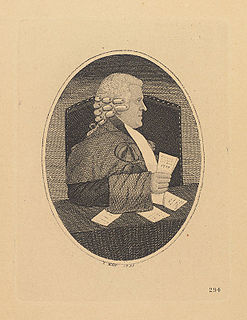This article needs additional citations for verification .(March 2016) |
Contents
| |||||
| Centuries: | |||||
|---|---|---|---|---|---|
| Decades: | |||||
| See also: | List of years in Scotland Timeline of Scottish history 1721 in: Great Britain • Wales • Elsewhere | ||||
Events from the year 1721 in Scotland.
This article needs additional citations for verification .(March 2016) |
| |||||
| Centuries: | |||||
|---|---|---|---|---|---|
| Decades: | |||||
| See also: | List of years in Scotland Timeline of Scottish history 1721 in: Great Britain • Wales • Elsewhere | ||||
Events from the year 1721 in Scotland.
The Treasurer of the Household is a member of the Royal Household of the Sovereign of the United Kingdom. The position is usually held by one of the government deputy Chief Whips in the House of Commons. They were a member of the Board of Green Cloth until that was abolished by reform of local government licensing in 2004 under section 195 of the Licensing Act 2003.

The Keeper or Master of the Rolls and Records of the Chancery of England, known as the Master of the Rolls, is the President of the Civil Division of the Court of Appeal of England and Wales and Head of Civil Justice. As a judge, he or she is the second in seniority in England and Wales only to the Lord Chief Justice. The position dates from at least 1286, although it is believed that the office probably existed earlier than that.

The Advocates Library, founded in 1682, is the law library of the Faculty of Advocates, in Edinburgh. It served as the national deposit library of Scotland until 1925, at which time through an Act of Parliament the National Library of Scotland was created. All the non-legal collections were given to the National Library. Today, it alone of the Scottish libraries still holds the privilege of receiving a copy of every law book entered at Stationers' Hall.
Events from the year 1811 in the United Kingdom. This is a census year and the start of the British Regency.

Sir William Macleod Bannatyne, Lord Bannatyne FRSE was a distinguished Scottish advocate, judge, antiquarian and historian.

Justice of the Common Pleas was a puisne judicial position within the Court of Common Pleas of England and Wales, under the Chief Justice. The Common Pleas was the primary court of common law within England and Wales, dealing with "common" pleas. It was created out of the common law jurisdiction of the Exchequer of Pleas, with splits forming during the 1190s and the division becoming formal by the beginning of the 13th century. The court became a key part of the Westminster courts, along with the Exchequer of Pleas and the Court of King's Bench, but with the Writ of Quominus and the Statute of Westminster, both tried to extend their jurisdiction into the realm of common pleas. As a result, the courts jockeyed for power. In 1828 Henry Brougham, a Member of Parliament, complained in Parliament that as long as there were three courts unevenness was inevitable, saying that "It is not in the power of the courts, even if all were monopolies and other restrictions done away, to distribute business equally, as long as suitors are left free to choose their own tribunal", and that there would always be a favourite court, which would therefore attract the best lawyers and judges and entrench its position. The outcome was the Supreme Court of Judicature Act 1873, under which all the central courts were made part of a single Supreme Court of Judicature. Eventually the government created a High Court of Justice under Lord Coleridge by an Order in Council of 16 December 1880. At this point, the Common Pleas formally ceased to exist.
The North British Review was a Scottish periodical. It was founded in 1844 to act as the organ of the new Free Church of Scotland, the first editor being David Welsh. It was published until 1871; in the last few years of its existence it had a liberal Catholic editorial policy.
Events from the year 1579 in the Kingdom of Scotland.
Events from the year 1853 in Scotland.

The 1696 Jacobite assassination plot was an unsuccessful attempt led by George Barclay to ambush and kill William III and II of England, Scotland and Ireland in early 1696.
John Bonar (1721–1761) was a Church of Scotland minister.
Events from the year 1791 in Scotland.
Events from the year 1762 in Scotland.
James Logan (1797–1872) was a Scottish author on Gaelic culture, best known for his 1831 book The Scottish Gael.
Events from the year 1680 in the Kingdom of Scotland.